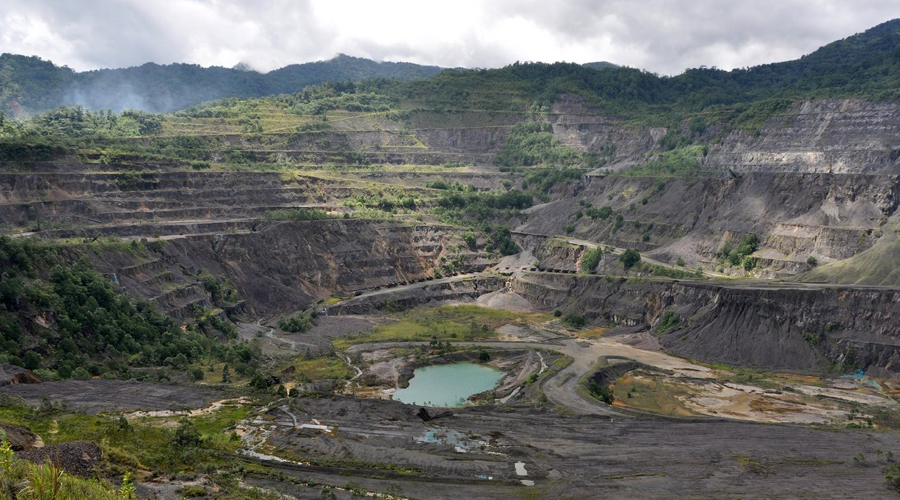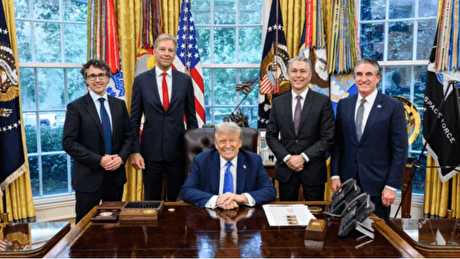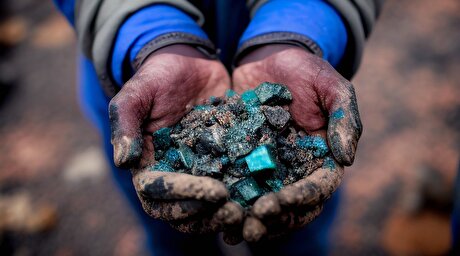
Rio Tinto ready for talks over Bougainville mine

We are ready to enter into discussions with the communities that have filed the complaint,” it said, adding it would also speak with current mine owners as well as the Bougainville and Papua New Guinea governments.
The stance marks a change from April, when Rio rebuffed a request by the same group for a review of health and safety concerns at the mine as a starting point for discussion around compensation and remediation.
It also highlights a different approach by Rio to social responsibility, after its destruction of sacred and historically significant rockshelters for an iron ore mine in Australia in May cost its chief executive and two other executives their jobs.
Rio Tinto subsidiary Bougainville Copper (BCL) ran the Panguna copper and gold mine in Papua New Guinea from the early 1970s to 1990 when it was abandoned during a civil war that was largely fought over how mine profits should be shared.
Rio handed its shareholding in the mine to national and local governments in 2016.
The complaint, backed by 156 community members, was filed on Tuesday to the Australian OECD National Contact Point by Melbourne’s Human Rights Law Centre. It alleges that the large volumes of mine waste left behind poisoned water sources, flooded lands and sacred sites, and caused a range of health problems.
Rio said that it was aware of the “deterioration of mining infrastructure at the site and surrounding areas, and claims of resulting adverse environmental and social, including human rights, impacts,” despite not having had staff at the mine since 1990.
While global miners have not been forced to account for mines they operated in the past, or those they inherited, they have come under increased pressure from shareholders in the past few years to ensure high standards of responsible mining.
The Bougainville mine – Bougainville Copper Ltd – is part listed on the Australian stock market and part-owned both by the Bougainville and PNG governments .
Bougainville, which held an election last week, is in talks with the Papua New Guinea government over its independence.


Barrick’s Reko Diq in line for $410M ADB backing

Trump weighs using $2 billion in CHIPS Act funding for critical minerals

Pan American locks in $2.1B takeover of MAG Silver

US adds copper, potash, silicon in critical minerals list shake-up

Trump raises stakes over Resolution Copper project with BHP, Rio Tinto CEOs at White House

Gold price gains 1% as Powell gives dovish signal

Gold boom drives rising costs for Aussie producers

Giustra-backed mining firm teams up with informal miners in Colombia

US seeks to stockpile cobalt for first time in decades

Kyrgyzstan kicks off underground gold mining at Kumtor

Kyrgyzstan kicks off underground gold mining at Kumtor

KoBold Metals granted lithium exploration rights in Congo

Freeport Indonesia to wrap up Gresik plant repairs by early September

Energy Fuels soars on Vulcan Elements partnership

Northern Dynasty sticks to proposal in battle to lift Pebble mine veto

Giustra-backed mining firm teams up with informal miners in Colombia

Critical Metals signs agreement to supply rare earth to US government-funded facility

China extends rare earth controls to imported material

Galan Lithium proceeds with $13M financing for Argentina project

Kyrgyzstan kicks off underground gold mining at Kumtor

Freeport Indonesia to wrap up Gresik plant repairs by early September

Energy Fuels soars on Vulcan Elements partnership

Northern Dynasty sticks to proposal in battle to lift Pebble mine veto

Giustra-backed mining firm teams up with informal miners in Colombia

Critical Metals signs agreement to supply rare earth to US government-funded facility

China extends rare earth controls to imported material

Galan Lithium proceeds with $13M financing for Argentina project

Silver price touches $39 as market weighs rate cut outlook

















